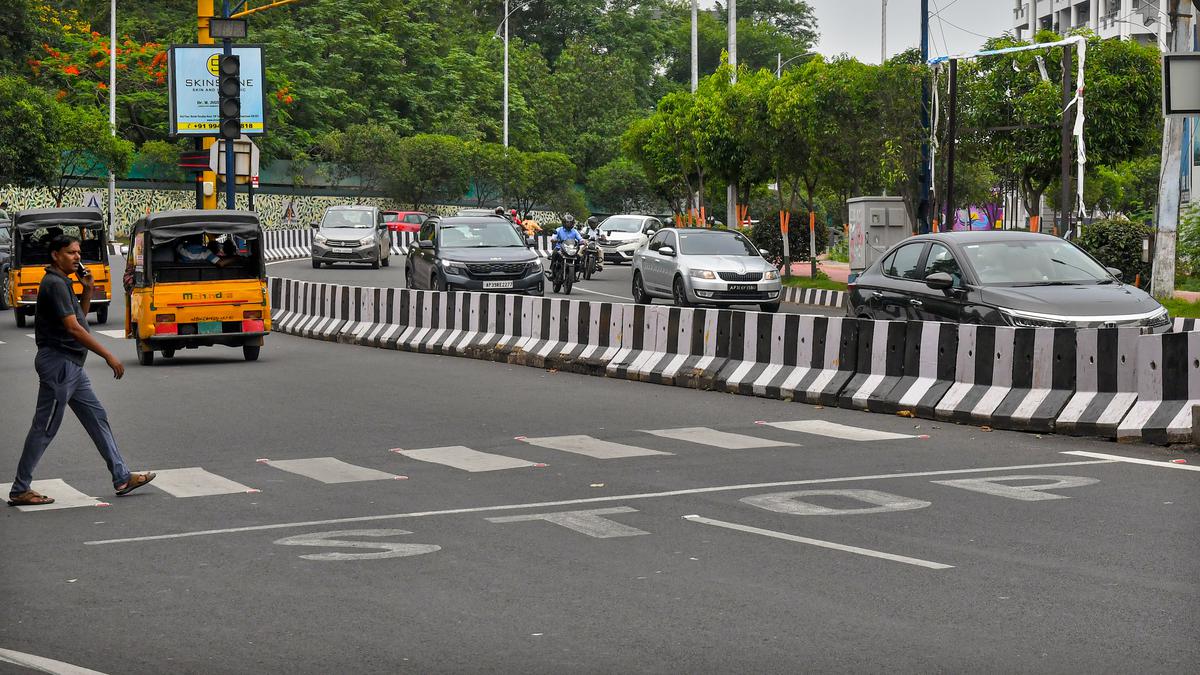
Closure of Tycoon Hotel Junction at the centre of political controversy in Vizag in 2023
The Hindu
Opposition parties protest closure of T-junction near Tycoon Hotel in Visakhapatnam, causing public inconvenience & alleged misuse of power.
The closure of the T-junction near the Tycoon Hotel has been at the centre of political controversy in the city, drawing public attention in the second half of the year 2023. Many motorists, especially the daily commuters, are disgruntled with the decision since they are made to travel an extra 2 km due to the closure of the busy three-road junction.
Political opposition to the move began in August when parties, including TDP, JSP, CPI and CPI(M), started protests against the move, alleging the involvement of the ruling YSRCP MP in the matter. They alleged that the junction was closed to favour the ruling party parliamentarian whose property is close to the road that led to it.
The members of the opposition parties have also vowed to intensify protests until the traffic signal is restored.
The row began in the first week of August when the city police suddenly closed the junction, asking motorists going from Siripuram to VIP Road to travel all the way down the Sampath Vinayaka temple road and take a U-turn. Similarly, those going from VIP Road to Siripuram are told to take a U-turn near the Dutt Island Junction.
While the decision has drawn mixed responses from the public, many motorists took to the smaller street roads in Balaji Nagar to reach VIP Road instead of riding on the Assilmetta Road.
The traffic police, however, maintain that the closure of the junction has led to a seamless flow of traffic in the area. Earlier, with a traffic signal at the T-junction, the traffic was frequently congested, not only near the Tycoon Hotel Junction but also at the Dutt Island Road. After the closure, the journey has been hassle-free between Siripuram to Assilmetta, they say.
The opposition parties, on the other hand, ensured that the issue was not forgotten.

“Writing, in general, is a very solitary process,” says Yauvanika Chopra, Associate Director at The New India Foundation (NIF), which, earlier this year, announced the 12th edition of its NIF Book Fellowships for research and scholarship about Indian history after Independence. While authors, in general, are built for it, it can still get very lonely, says Chopra, pointing out that the fellowship’s community support is as valuable as the monetary benefits it offers. “There is a solid community of NIF fellows, trustees, language experts, jury members, all of whom are incredibly competent,” she says. “They really help make authors feel supported from manuscript to publication, so you never feel like you’re struggling through isolation.”

Several principals of government and private schools in Delhi on Tuesday said the Directorate of Education (DoE) circular from a day earlier, directing schools to conduct classes in ‘hybrid’ mode, had caused confusion regarding day-to-day operations as they did not know how many students would return to school from Wednesday and how would teachers instruct in two modes — online and in person — at once. The DoE circular on Monday had also stated that the option to “exercise online mode of education, wherever available, shall vest with the students and their guardians”. Several schoolteachers also expressed confusion regarding the DoE order. A government schoolteacher said he was unsure of how to cope with the resumption of physical classes, given that the order directing government offices to ensure that 50% of the employees work from home is still in place. On Monday, the Commission for Air Quality Management in the National Capital Region and Adjoining Areas (CAQM) had, on the orders of the Supreme Court, directed schools in Delhi-NCR to shift classes to the hybrid mode, following which the DoE had issued the circular. The court had urged the Centre’s pollution watchdog to consider restarting physical classes due to many students missing out on the mid-day meals and lacking the necessary means to attend classes online. The CAQM had, on November 20, asked schools in Delhi-NCR to shift to the online mode of teaching.









